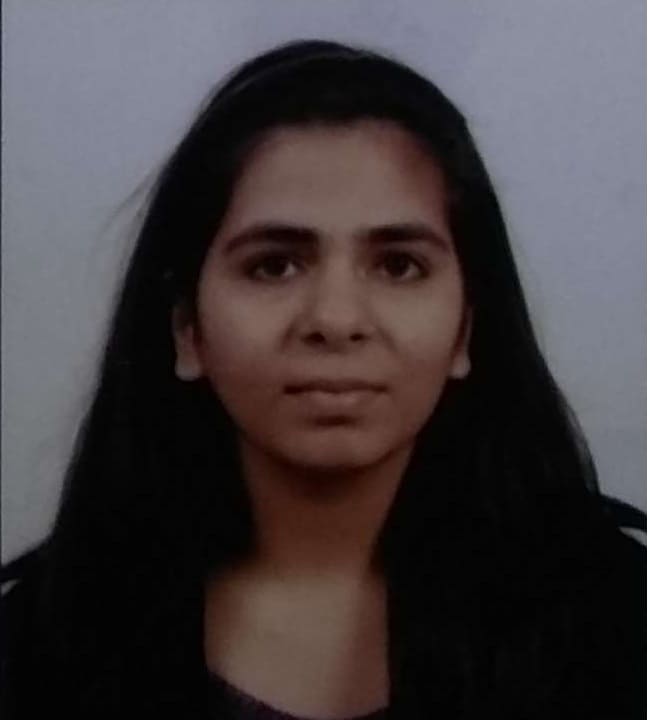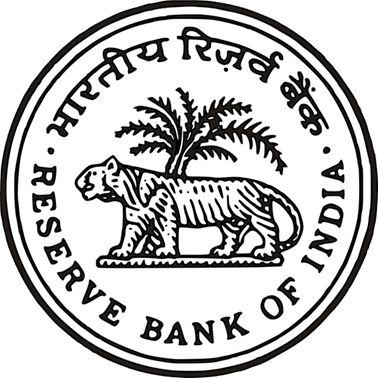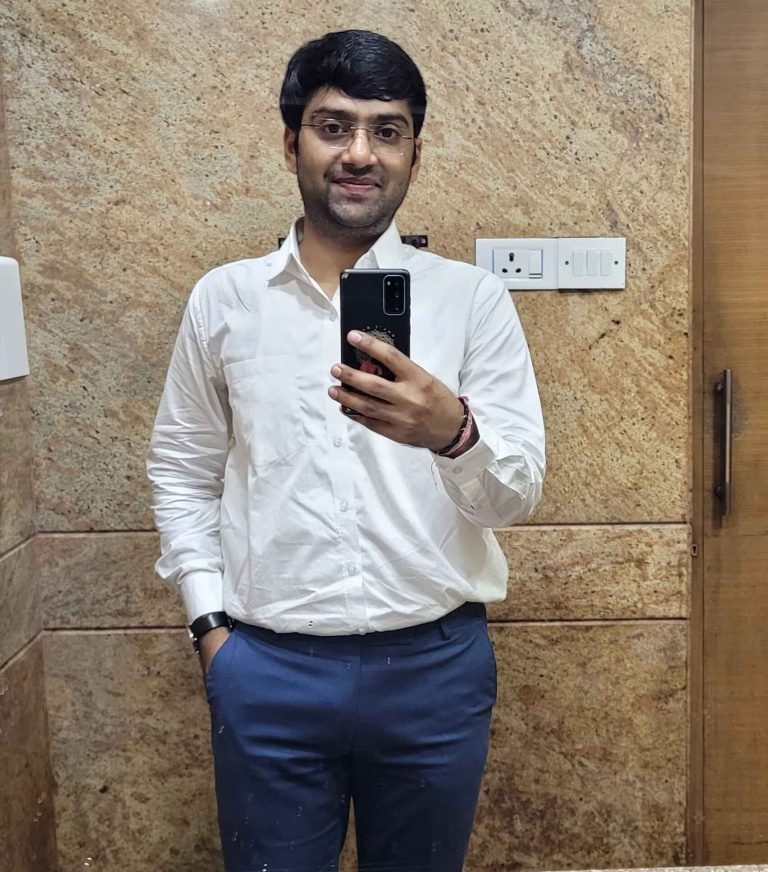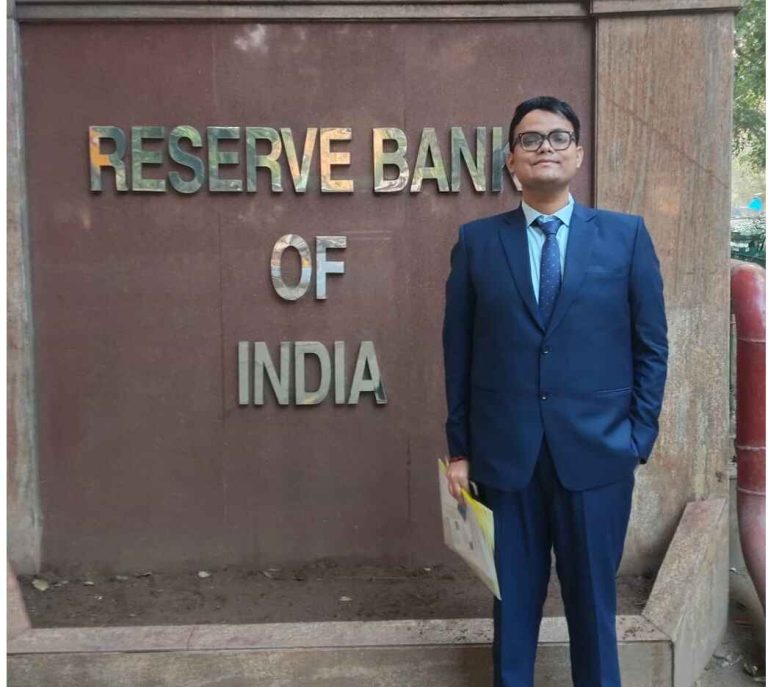Hi. I am Swastik Yadav and I qualified RBI DEPR 2023 Exam. In this post, I am sharing my Interview Transctipt with you.
Background : I have pursued B.A.(Hons) Economics (2015) from SRCC,University of Delhi and MA Economics from Delhi School of Economics (2017)
Marks awarded in this Interview : 50.75
(Time: Around 20 minutes; 6 panel members; 1 Female and 5 Males)
Chairman Sir- (Reading my bio-data out loud) You left your job in 2022, what have you been doing since then? (as I had a gap of 2 years)
Told them, I’ve been dedicatedly preparing for the RBI exam. Everyone laughed a little bit and then asked follow up question.
C: So what have you prepared for the interview?
Told them about speeches, reports published by RBI and some of the research papers published by the DEPR.
C: Explain any one research paper you recently read. He pointed to another panel member and asked me to explain it to him, as he would be asking further questions on that.
Mentioned about the paper, ‘Impact of FDI on profitability of Indian Corporates’.
Chairman sir interrupted in between and said, “Before sir asks you questions on that, I would like to pose a question.”
C- So what do you think.. Is FDI in India leading to profitability of corporates or is it the profitability of corporates that is attracting FDI in India?
Explained it using the concept of endogeneity… how both impact each other.
Chairman sir was satisfied with the answer and asked the other panel member to ask the question on the same.
M1- Explain the methodology used in the paper.
Explained the Generalised method of moments that was used to address the issue of Endogeneity.
M1- What is the issue with endogeneity of variables and how is the GMM method used to solve it?
Explained in detail causes of endogeneity and how GMM is used to obtain consistent and robust estimates.
Sir was satisfied with the answer.
M2. Swastik, explain the meaning of your name.
Briefly explained its origination and meaning.
M2. Does RBI make profit?
Yes sir
M2. How much surplus did the RBI transfer to the government this year?
Sir around ₹87400cr
M2. How does RBI earn income?
Sir, through interests on loans and advances it gives to central and state governments, interest on LAF and SDF operations, interest on investments etc.
C- Have you been through RBI’s balance sheet? You’re missing a major component of income. So far you’ve talked about domestic sources of income.
Yes sir, I’ve been through RBI’s balance sheet. I’m sorry, I forgot to mention about interest on foreign securities, income from foreign exchange transactions.
C- Correct. That’s the major component of income.
M3 (ma’am)- You said you have been through speeches. So recently the governor in one of his speeches talked about a trade-off faced by monetary policy makers. Can you recall that?
I told ma’am that though I remember that sir talked about this in one of his speeches in October but I couldn’t recall it exactly.
M3. No problem. Let’s break it together. What do you understand about price stability?
Answered it.
M3. Good. And what do you understand about financial stability?
Answered it.
M3. Now can you connect the two and explain the trade off.
Now I was able to connect the two and explained how in monetary policy there’s a trade off between prioritising growth over inflation (as faced during covid time) and how after covid the priority shifted to inflation.
Ma’am looked satisfied with my answer
M2. Are you familiar with forecasting methodologies used by RBI?
Told sir that I have surface level knowledge about it. Referred to one of Governor sir’s speeches at DSE event where sir talked about nowcasting, short-term forecasting and medium-term forecasting.
M2. What is nowcasting?
Explained its definition and how it’s done
M2. There’s a famous nowcasting model used. Can you recall its name?
Sorry sir, I can’t recall at the moment.
M2. It’s a Dynamic Factor Model. I suggest you go through it afterwards.
Sure sir. I’ll definitely read more about it.
M2. This is my last question…(Don’t exactly remember the question but it was something like this) There’s a rate which policy makers around the globe(I’m not talking about repo rate) try to monitor, some call it R-star. Do you know anything about it?
Told him that I’m not sure about it but would like to give it a try. When sir nodded, I tried to guess. Sir said it’s something on that line but not exactly that.
M4. If you have been through recent developments, you must have come across a debate related to India’s demographic dividend. One viewpoint which has emerged is that India might become old before it becomes rich. What are your views on it?
Talked about India’s rank and performance in HDI index. How India has a golden opportunity to reap its demographic dividend to achieve sustainable growth, challenges and way forward.
Sir looked happy with my answer.
C- What other options are you considering apart from RBI?
Told him that as my primary interest is in academia and research, I wish to pursue a PhD.
He laughed
C: Don’t you think it’s too late? You completed your masters in 2017, it’s been more than 5 years now.
Explained my reasons for not pursuing PhD earlier and my motivation to pursue it in future, if RBI permits.
“Ok, you can leave now.”
My overall experience was very good. I was very nervous before the interview but the panel was very cordial. They were smiling, nodding in agreement, encouraging and helping me to answer questions about which I wasn’t sure. This made the whole process very relaxed.
FEW TIPS-
- I think they appreciate your honesty. So when you don’t know the answer, instead of beating around the bush, you should acknowledge that you don’t know it.
- If you have some idea but aren’t sure of the answer, you can tell them you aren’t sure but would like to try. They usually encourage you to try, as this gives them insight into the way you think and analyse things and also shows your enthusiasm to make sense of the issue at hand.
- I think what they check in the interview is how you handle yourself and your thinking and analytical skills. So try to smile and stay calm. Be confident and humble while answering the questions.
- For preparation- I read major reports published by RBI, speeches, RBI bulletin, RBI website, MPC meeting reports, and a few research papers published by DEPR. This will give you useful data to back your answers.
- Reading the newspaper is a must. It helps you develop perspective on events happening in the Indian and global I used to read Business Standard and Indian Express, you can choose any newspaper, as per your preference. Apart from that, I also used to watch MACROSUTRA episodes on youtube channel of THE PRINT.
- As this post is related to research, I would recommend that you revise econometrics and macroeconomics well for the Interview
- I gave 4 mock interviews in total. It helped me to work upon my weak areas and I learned how to handle myself in interview. So try to give as many mocks as possible before the interview.
Note : Swatik was enrolled RBI DEPR (Phase-1) Test Series, English Essay Course, Descriptive Writing Sessions for Phase-2 and Free Interview Guidance Programme, with Testonomics, for RBI DEPR 2023 Exam preparation !





